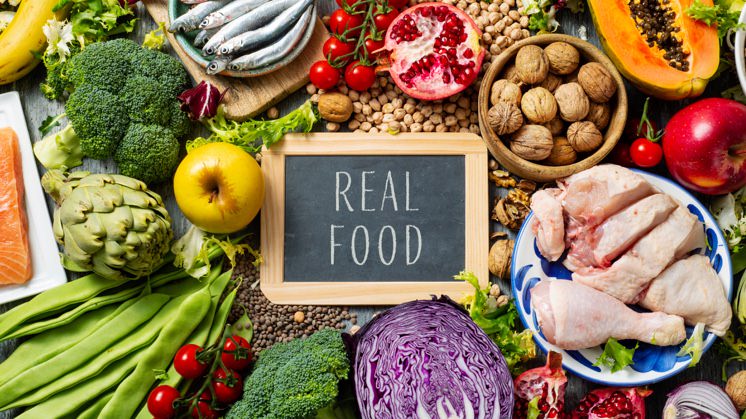10 Foods to Consume Daily
Consuming a healthy diet that includes all the food groups can help a person improve their intake of essential nutrients.The healthiest foods and diets focus on real whole food, lots of vegetables and fruits, whole grains, healthy proteins and fats. Added sugar and sodium is limited. So, here is a list of 10 easy-to-eat, easy-to-find, everyday foods essential to maintain healthy body.
1. Broccoli and other cruciferous vegetables
Cruciferous vegetables contain sulfurous compounds called glucosinolates. Glucosinolates regulate cell pathways and genes and may have anticancer and anti-inflammatory effects. The compounds may also be beneficial for treating and preventing metabolic syndrome, but scientists need to conduct more research to prove this.
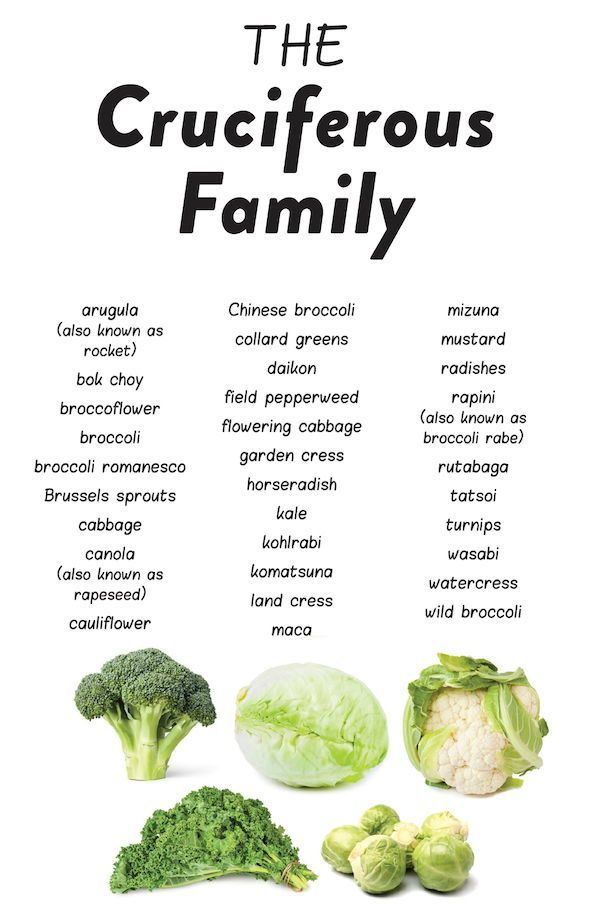
The following is a list of cruciferous vegetables that people can aim to eat every day:
- broccoli
- cabbage
- radish
- cauliflower
- broccoli sprouts
- Brussels sprouts
Also, as well as sulfur compounds, cruciferous vegetables are a rich source of fiber and many essential vitamins and minerals. Leafy greens such as arugula and watercress also contain beneficial sulfur compounds.
2. Different colored vegetables
Eating a range of different colored vegetables every day helps ensure an intake of a wide range of phytonutrients, which are beneficial plant compounds. It is recommended that adults should eat 2–4 cups of vegetables per day depending on their sex, age, weight, and activity levels.
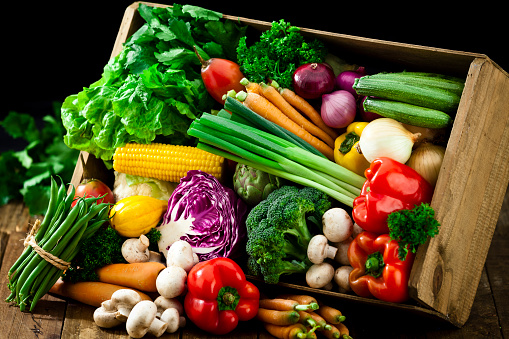
3. Berries
All berries are good for you so be sure to mix it up. In the winter, when berries aren’t in season, grab frozen (without sweeteners) which are great for smoothies, oatmeal, or thawed in yogurt.
Raspberries (one of the best breakfast foods for weight loss) boast the most fiber at 8 grams per cup-and also contain ellagic acid, a compound with anti-cancer properties. The same amount of blueberries has half the fiber (4 grams), but is packed with anthocyanins, antioxidants that may help keep memory sharp as you age. A cup of strawberries contains 3 grams of fiber, but more than a full day’s recommended dose of skin-firming vitamin C.
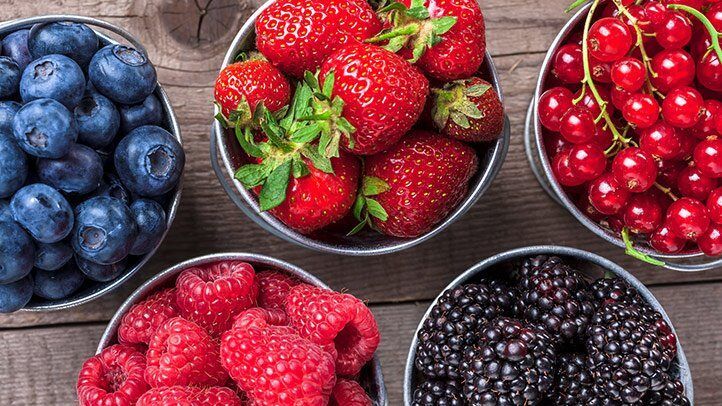
For example, one 2015 study suggested that eating a 100-gram portion of raspberries, blackberries, or blueberries could provide more than 50% of someone’s daily requirement for manganese, vitamins such as vitamin C and folate, and phytochemicals.
Berries are excellent sources of bioactive compounds such as phenolic acids, flavonoids, and anthocyanins. Because these compounds act as antioxidants, they may help prevent cardiovascular disease and lower the risk of some cancers.
Some berries to eat every day include the following:
- blueberries
- blackberries
- raspberries
- strawberries
- cranberries
Fresh or frozen berries are better than dried types, which only have 20% as many phytonutrients.
4. Nuts
Nuts are packed with healthy polyunsaturated fats and magnesium, two important nutrients for heart health. These nutrients may also offer protection against insulin resistance, which can lead to diabetes. Antioxidant compounds found in nuts, including ellagic acid and resveratrol, can reduce the wear and tear on your body from free radicals. In turn, this lowers inflammation, which may reduce cancer risk. Plus, nuts provide insoluble fiber, which studies suggest may help you stay healthy by feeding beneficial gut bacteria. Spread nut butter on toast, grab a handful of nuts for a snack or make your own simple trail mix.
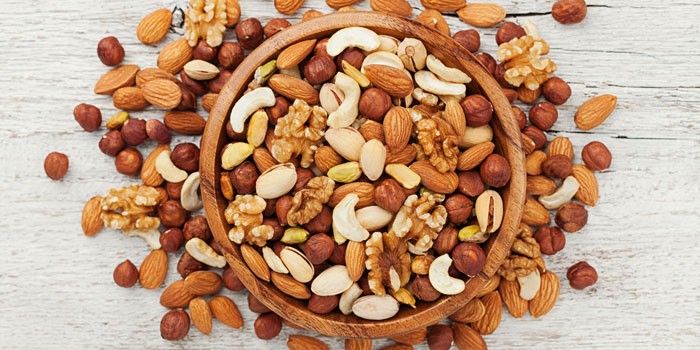
Research indicates that eating nuts every day can be beneficial for health.Specifically, tree nuts were more beneficial than peanuts in preventing chronic conditions.
Almonds are packed with monounsaturated fatty acids, which keep blood vessels healthy. The plant fibers help lower cholesterol.Walnuts are a solid source of omega-3 fatty acids—the fats that lower the bad-for-you cholesterol (LDL) and raise the good-for-you kind (HDL).
One study suggested that some people may be reluctant to eat nuts because of their high fat content. However, nuts are nutrient dense foods that do not have an adverse effect on body weight. Indeed, when they replace other less healthy foods in the diet, they may help reduce body weight.
5. Tea

Studies show if you drink tea regularly, you may reduce your risk of Alzheimer’s, diabetes and some cancers, plus have healthier teeth and gums and stronger bones (Tea may also help with weight loss). How? Tea is rich in a class of antioxidants called flavonoids. Regardless of the variety of tea you choose, maximize the power of its flavonoids by drinking it freshly brewed. If you want to keep a batch of cold tea in your refrigerator, add a little lemon juice-the citric acid and vitamin C in that squeeze of lemon, lime or orange help preserve the flavonoids.
6. Oats
Interest in oatmeal has increased considerably during the past 20 years because of its health benefits. Research has found that the cereal’s soluble fiber content helps lower cholesterol levels and reduce cardiovascular risk factors.
Oats contain complex carbohydrates, as well as water-soluble fiber. These slow down digestion and help stabilize levels of blood glucose. Oatmeal is also a good sourceTrusted Source of folate and potassium.
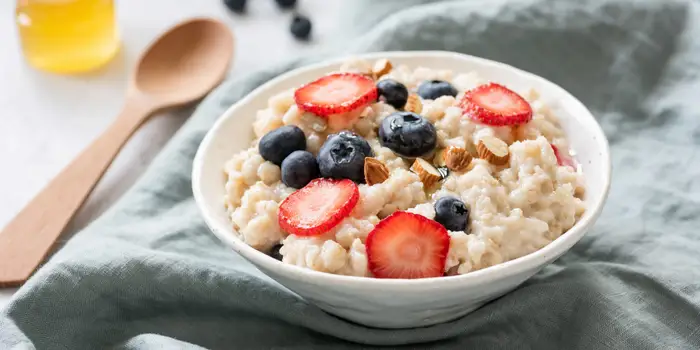
Oatmeal keeps cholesterol in check, helps fight against heart disease, and keeps you full until lunch, thanks to its soluble fiber. Look for old-fashioned or steel-cut varieties.
Fiber is good for our guts and our waistlines and for keeping us full-all very important qualities in a breakfast food. Plus, oats are a whole grain and plain oats don’t have any added sugar.
7. Yogurt
Yogurt is a fermented dairy product that’s both delicious and healthy. It contains high-quality proteins and fats, as well as calcium and several vitamins. Eating yogurt has been associated with both improved bone health and reduced blood pressure.
Certain types of yogurt — marketed as probiotic yogurt — contain active cultures of beneficial bacteria. These probiotic bacteria are linked to many health benefits, including improved cholesterol, immunity, digestion, and synthesis of various B and K vitamins in your digestive system.
However, be sure to avoid yogurts that are loaded with added sugar. Instead, buy natural yogurt and add some fruit, berries, or muesli for more flavor and a crunchy texture.
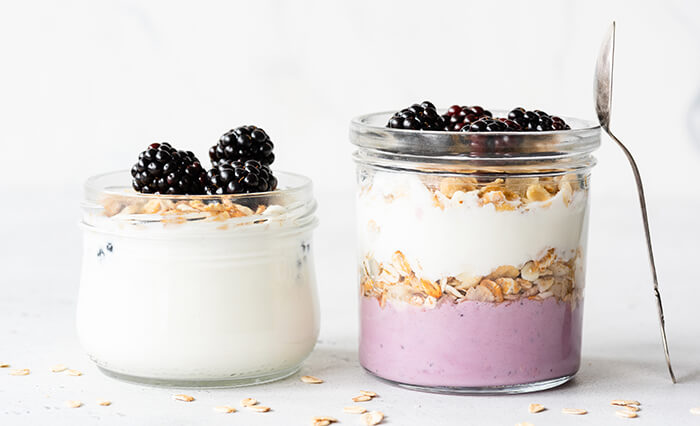
Yogurt contains probiotics or “good bacteria” that help keep our guts healthy. It’s also rich in calcium. Just 1 cup of yogurt provides nearly half the recommended daily value of calcium and delivers phosphorus, potassium, zinc, riboflavin, vitamin B12 and protein. Choose Greek yogurt for an even bigger protein boost and whenever possible reach for plain. Flavored yogurts tend to have lots of added sugar which add calories without nutrition.
8. Olive Oil
Olive oil is an outstanding source of monounsaturated fats. When used in moderation, this tasty Mediterranean staple may even cut the risk of heart disease. Olive oil is a key ingredient in the Mediterranean diet. Olives are rich in polyphenols. These act as antioxidants, protecting the body against oxidative damage.
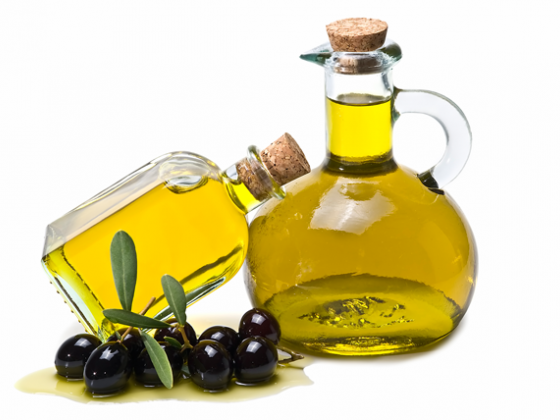
One study suggested that the phenolic compounds in olive oil have anticancer and anti-inflammatory properties in test tube studies. Although scientists need to conduct more human research, the authors of this study suggested that people who consume less olive oil may benefit from increasing their intake.
Extra virgin and unfiltered olive oil contain the highest levels of beneficial polyphenols. However, quality olive oil is usually more expensive, so people can reserve this for drizzling over salads and vegetables. Using standard olive oil for cooking may be more cost effective.
9. Sweet Potatoes
Sweet potatoes are very nutritious, high in fiber, and deliciously sweet. They’re a great source of vitamin A (from beta-carotene) and provide decent amounts of vitamin C, as well as other vitamins and minerals.
Sweet potatoes also contain several antioxidants and may reduce oxidative damage, potentially reducing your risk of cancer. One white variety may also help moderate blood sugar levels.
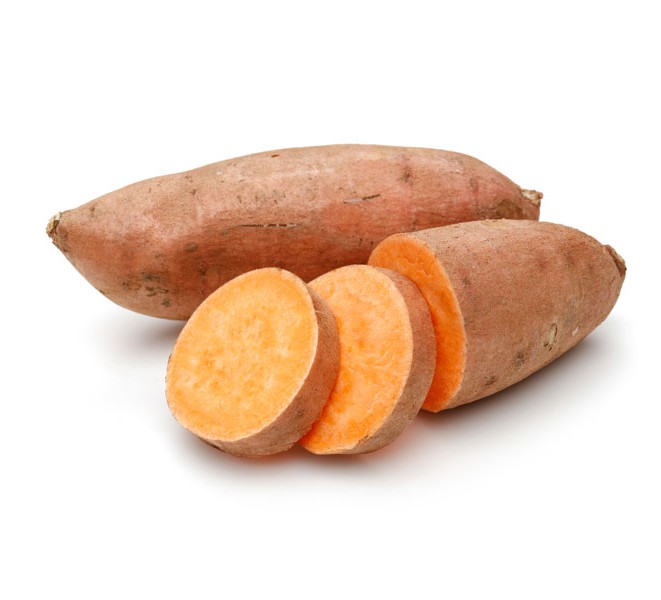
Whether they’re boiled, baked, or fried, sweet potatoes taste great and are especially delicious with some sour cream or salted butter.
The darker the color, the richer these tubers are in the antioxidant beta-carotene.Sweet potatoes provide dietary fiber, vitamin A, vitamin C, vitamin B-6, and potassium.
The Center for Science in the Public Interest compared the nutritional value of sweet potatoes with that of several other vegetables. Sweet potatoes ranked number one for their vitamin A, vitamin C, iron, calcium, protein, and complex carbohydrate content.
10. Cheese and Peanut Butter

Many consider cheese one of the most delicious foods. It’s highly nutritious — rich in several vitamins and minerals like calcium, vitamin B12, phosphorus, selenium, and zinc.
Cheese and other dairy products are linked to improved bone health and may protect against osteoporosis, a disease characterized by bone loss and an increased risk of fractures.
There are many types of cheese — all of them consist mainly of protein and fat, and most are relatively high in calories.
As a high-protein food, cheese may promote lower blood pressure and increased absorption of minerals. In addition to providing various health benefits, cheese is simply very tasty and filling.
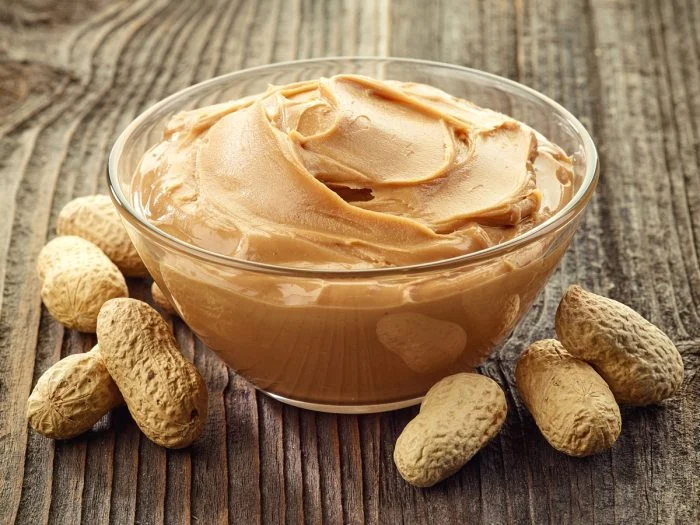
Peanut butter is a great source of unsaturated fatty acids, protein, and fiber. It’s also an excellent source of many vitamins and minerals, including B vitamins, copper, manganese, vitamin E, phosphorus, and magnesium. Plus, peanuts are very rich in antioxidants — even more than some fruits.
They’re very filling, and — despite being high in fat and calories — are not linked to weight gain. In fact, they’re associated with a reduced risk of obesity.
However, some people find it hard not to eat too much peanut butter at a time. Try to moderate your portions to avoid excess calorie intake. If you tend to binge on peanut butter, it may be best to avoid it. Also, be sure to choose varieties without added sugar or oils. The ingredient list should only include peanuts and a small amount of salt.Try adding some peanut butter on top of apple slices, celery, or a banana for a tasty snack.

